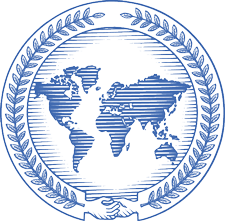BREADTH
Think about the curriculum as if the letter “T” represented it. The top horizontal segment of the T represents the courses you will take in common with other students in the program to acquire breadth in the field of social enterprise. These will include our sequence of courses introducing the field of social enterprise, the dynamics of leadership in it, and a review of its emerging best practices with an emphasis on the tools of innovation. Depending on your previous background in economics you will also take one or two graduate courses in this subject. You will also take a series of methodology courses covering ethics, basic accounting and financial analysis, and practicum planning.
DEPTH
The vertical column of the T is where you acquire depth in the specialization you choose to concentrate in. You may use this part of your study to develop substantive knowledge about a specific problem you want to address through social entrepreneurship. You may also choose to use it to sharpen your mastery of specific techniques in areas such as management, resource-acquisition, or evaluation. You will do this through courses you choose throughout all of American University’s schools, as well as internships and jobs. You’ll identify conferences to attend in your specialty and begin to build your professional network around it. You’ll also seek coaches, mentors and sponsors to guide your career development. This specialization that you create will be your customized link to what you plan to do after you graduate. You will “put it all together” through a capstone practicum project you create and carryout just before you graduate.
YOUR COHORT
The Social Enterprise M.A. is cohort-based. This means you’ll start the program, get oriented, and take a three-semester sequence of courses with the group of students you entered with. You will also engage with them in action learning and extra-curricular projects throughout your graduate study. Other graduate students from SIS and other schools at AU will also be in most of your courses, but your cohort members are likely to be the ones you most closely identify with. They’ll be the core around which you build a network of professional colleague relationships that may last throughout your career in social enterprise. We give a lot of attention to admitting students with diverse education, work, and cultural backgrounds because we believe you’ll learn a lot from your peers.
ACTION LEARNING
Learning-by-doing is a critical component of any program intended to produce doers. You will have several opportunities in be involved in intense experiential learning. These range from team-based consulting projects for start-up social enterprises to summer and semester-internships, and your final semester capstone project. For some of you, these may involve taking the initial steps to create your own new venture, either alone or in partnership with your student-colleagues. In effect, some participants will use the program to incubate a social enterprise and create their own job.
PROFESSIONAL DEVELOPMENT COACHING
This is the glue that binds you with the rest of the program, your classmates, and your post-graduation plans. It begins on your first day and continues until you leave. The first year emphasis is on self-assessment and peer learning – you’ll study the professional competencies that don’t always make it into graduate curriculums, but can be make or break factors for real-world success. These include presentation and selling skills, goal setting, burnout prevention, and network-building. Later the focus of the coaching component will shift to what you plan to do after graduation – idea incubation. Advisors, from inside and outside of American University, will be assembled to help you master the practicalities of how to turn your vision into reality. A structured approach to self-assessment and career planning will be used throughout. You will analyze yourself, inventorying the skills and knowledge you bring to the program, examining your passions and motivations, and then develop a plan to get the most from your two years by personalizing the program around this self-assessment. Ongoing faculty mentoring will help ensure that you stay on track with your plans.
THE HIDDEN CURRICULUM
Like many graduate programs intended to have a strong impact on their students, there is a “hidden curriculum” involved throughout our program. It is intended to help you acquire:
• Clarity about what you are passionate about – and why.
• Skill in winning the hearts and minds (and wallets) of supporters for your efforts.
• Fluency in ethical reasoning.
• Ways to use feedback and reflection to self-correct and guide your future actions.
• An ability to act in situations involving ambiguities or conflicts.
THE LANGUAGE REQUIREMENT
As required of all students in our masters programs, you will demonstrate proficiency in a modern language in addition to English before your graduation. This will sharpen your ability to work across cultures and see the world through more than one set of linguistic eyes.
